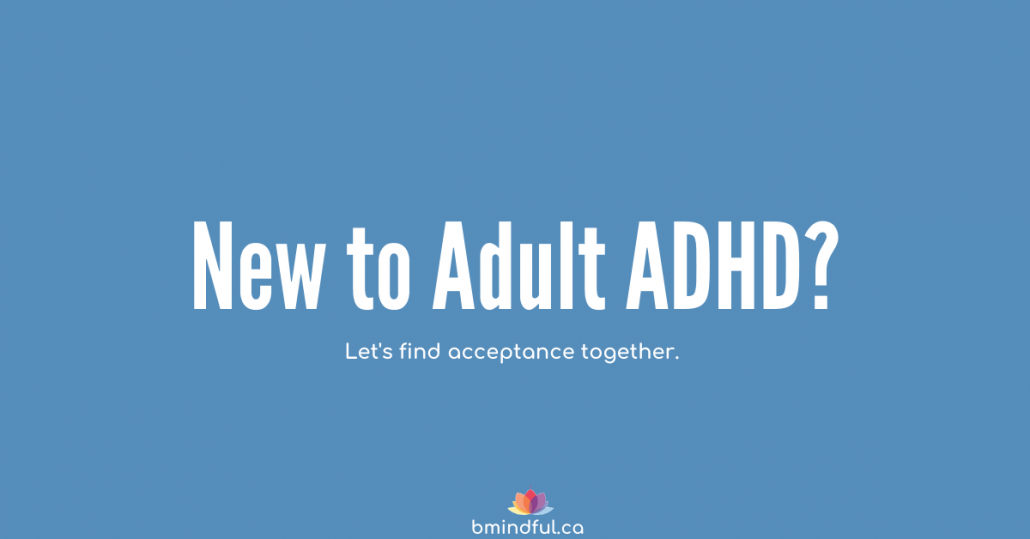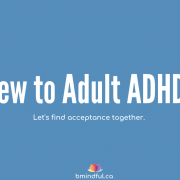 Being diagnosed (or realizing you may have ADHD) as an adult is most likely not a total shock, but with it can come a cascade of emotions and questions. A new diagnosis can begin a serious unravelling of your life’s narrative.
Being diagnosed (or realizing you may have ADHD) as an adult is most likely not a total shock, but with it can come a cascade of emotions and questions. A new diagnosis can begin a serious unravelling of your life’s narrative.
Seriously, why has it taken this long?
You may be wondering or even angry, why has it taken this long? No, it is not your parent’s fault (as easy as it would be to blame them). The ADHD diagnosis has taken a long ways to arrive at the understanding we have today. There has been a lot of misinformation and stigma surrounding ADHD that may have led our parents (or ourselves) back in the day, not pursue diagnosis. Further, if you are female there is another hurdle that ADHD was commonly seen as a condition that affects mostly males. Females often tend to have a less obvious type than males, and frequently ADHD symptoms might have been seen as “personality traits” (like being talkative).
Why now? Being diagnosed as adult often comes about when you become a parent. ADHD has long been identified as a common disorder of childhood. In fact, ADHD was not fully recognized as a condition that persists into adulthood until about 20 years ago. It is in becoming a parent that starts this unfolding process. Primarily because through the process of a child being diagnosed, one learns the condition is hereditary, with a 40 % chance that one or both parents has ADHD as well. If it is not from becoming a parent, it may be from some other huge life change, a separation in a relationship, a new job, you know those huge curve balls mid-life likes to throw. Until this point, your amazing brain has learnt along the way how to compensate for wiring challenges, however a new change may just put you over your capacity to manage things the way your previously were able to.
A new ADHD diagnosis comes with a mixed bag of emotions
Now, let’s take a slow deep breath together. Being diagnosed (or becoming aware) as an adult can alter the entire way you have seen your life. It may come with a sense of relief at finally understanding why you are the way they are. It may also be joined by anger, sadness, or regret for past struggles. You may be rethinking how things might have been different if you had only known sooner. A new diagnosis can begin a serious unravelling of life events that may lead to you seeing people and memories in different ways. This is a normal part of the journey, know that you are not the first (or last) ADHD adult to be experiencing these waves.
The journey of getting the right help
You may have noticed you have more challenges than other adults when it comes to organization, focus, time-management and motivation. Luckily, you do not have to continue life as usual or go it alone. Know that research has shown that ADHD responds successfully with a combination of medication and therapy. Boom, quality of life will be enhanced! This life altering moment is truly an opportunity, but it may take time to find the right medication, the right fit with professional help, and/ or alternative supports, like books, blogs, and groups that really get ‘you’. [Insert patience here].
So it’s not me, it just that my brain is wired differently?
Awareness of your newfound ADHD can often bring seismic shifts. It is essential to gain an understanding of the effects of ADHD and learn new skills to make up for these executive function deficits. Understanding the ways your brain functions differently, how it has impacted your life growing up and how it is affecting you today can truly make a different in your daily perspective. However, know that there is no instant trick or cure. This is a marathon not a sprint. It is not just about learning new skills, but more so about learning how to implement them day, after day, after day. This my friend, requires solid acceptance. It is a difficult process and journey, but with it may come a new self-understanding, forgiveness, ease of being with others, and ultimately feeling good about yourself (because you are pretty spectacular).
Stay tuned as we dive deeper into what self-acceptance really looks like for ADHD and how you can change your relationship with your (big beautiful) ADHD brain.



